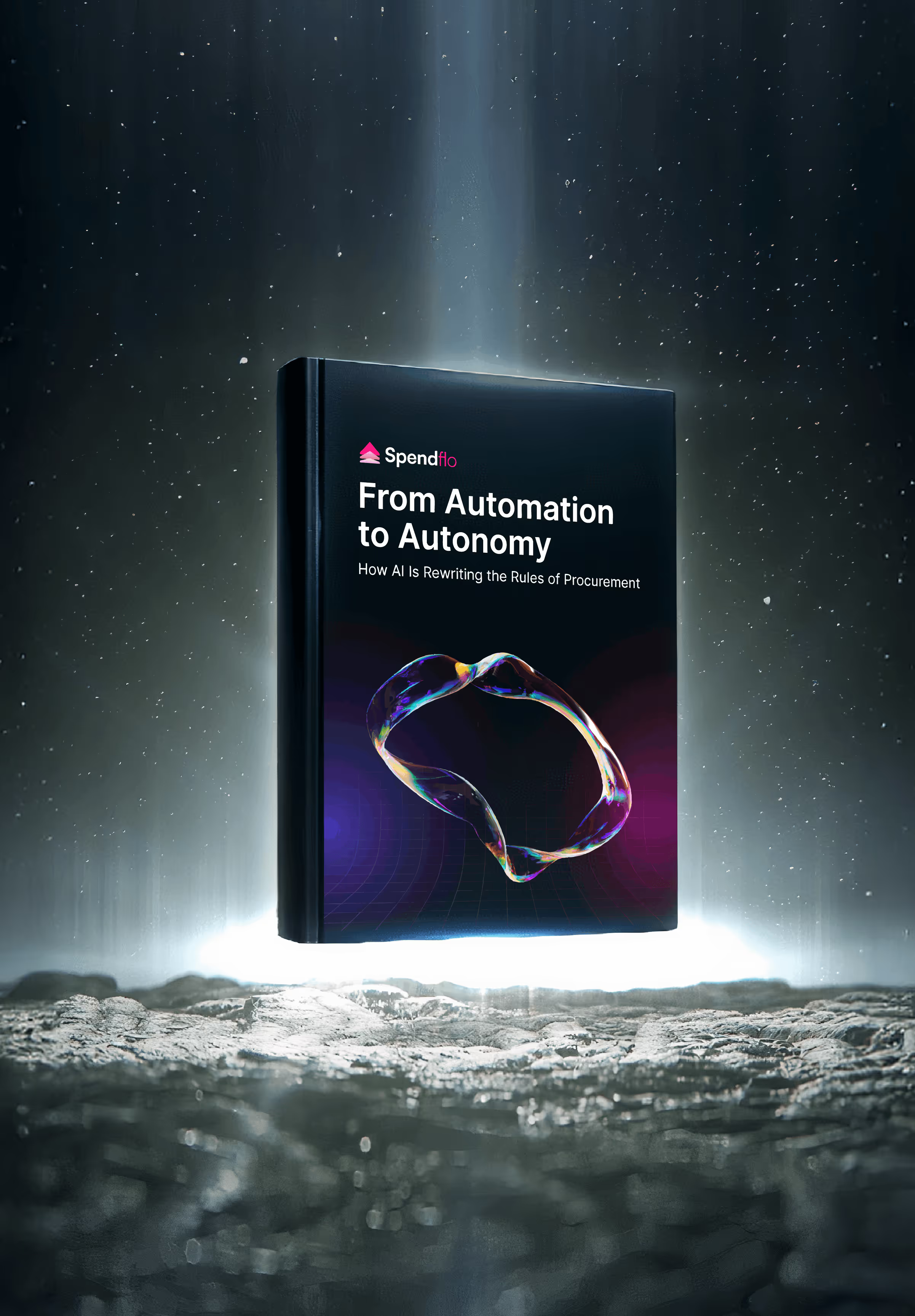

What Is A Procurement Contract? Explained (+ Clauses & Examples)

What Is A Procurement Contract? Explained (+ Clauses & Examples)
Procurement contracts are crucial for any business. This in-depth guide explores the different types, important clauses, and tips for contract management


Procurement contracts are a cornerstone of effective vendor relationships and strategic sourcing. But not all contracts are created equal - each procurement contract type offers unique structures, risk-sharing models, and payment terms that can significantly impact your project outcomes.
Choosing the right procurement contract isn’t just a legal formality - it’s a strategic decision that influences cost control, delivery timelines , supplier accountability, and compliance. Whether you're procuring goods, services, or technology, understanding the types of procurement contracts available helps you match contract models with business needs.
This blog explores the major procurement contract types and what sets them apart, so you can make informed decisions that reduce risk, protect your interests, and maximize value.
What is a Procurement Contract?
A procurement contract is a formal, written agreement between a purchasing organization and a supplier that establishes the terms and conditions governing the purchase of goods or services. It goes beyond the basic outline provided by purchase orders, offering a more comprehensive and protective framework for both parties.
While beneficial for reducing risks and ensuring smooth operations, poorly drafted procurement contracts can lead to misunderstandings, disputes, and financial losses.
As businesses evolved and outsourcing became more common, procurement took on a more strategic role. Simple purchase orders were no longer enough to manage increasingly complex vendor relationships, compliance requirements, and fluctuating costs.
This led to the adoption of robust procurement contracts to better structure and safeguard business agreements. Strong contracts improve vendor relationships management by clearly defining contract clauses, aligning with performance goals, and supporting structured workflow automation for approvals and renewals.
Understanding the types of procurement contracts is critical because each type serves a different purpose based on scope, risk appetite, and financial strategy.
Benefits of the Right Procurement Contract Type
Selecting the right procurement contract type is more than a procedural decision - it's a strategic move that directly impacts cost, compliance, and supplier performance. When aligned with business needs, the right contract can create long-term value and minimize operational risks.
Here are the top benefits of choosing the right procurement contract model:
1. Better Control Over Project Costs
Choosing a contract with fixed or clearly defined pricing helps companies manage budgets effectively. It prevents cost overruns and ensures financial predictability, especially for well-scoped projects with little room for deviation. This is particularly useful when managing large-scale supply chain purchases, where a clear target cost helps maintain financial discipline.
2. Fair Allocation of Risk
Different contract types allocate risks differently between buyer and supplier. Matching the contract to your project’s risk profile allows for better mitigation of issues like cost inflation , scope changes, or vendor delays - without placing undue pressure on either party. Risk-sharing terms can be strengthened during contract negotiation, ensuring both parties agree on ownership of potential delays or budget changes.
3. Improved Vendor Accountability
Structured contracts tie payment or milestones to performance, making vendors more accountable. When expectations, deliverables, and penalties are clearly outlined, it reduces the risk of underperformance and ensures higher quality service or product delivery. Well-defined contract clauses tied to deliverables and timelines can support tighter enforcement of vendor responsibilities.
4. Alignment With Compliance and Business Goals
Contracts can be designed to reflect internal governance policies and industry regulations. The right structure ensures that procurement activities comply with standards related to data privacy, sustainability, labor laws, and more - this is especially critical in regulated industries. Incorporating contract lifecycle management tools ensures that compliance checkpoints are built into every phase - from initiation to closeout.
5. Enhanced Project Efficiency
A contract well-suited to the scope and complexity of a project helps streamline execution. It reduces unnecessary negotiations, rework, or disputes, enabling faster approvals, smoother workflows, and timely deliveries across stakeholders. Automating approvals and document handling through workflow automation enhances turnaround times and eliminates manual bottlenecks.
6. Stronger Supplier Relationships
A well-matched contract fosters clarity and trust. Vendors are more likely to collaborate, prioritize your needs, and stay engaged when contract terms are fair and transparent - building a solid foundation for long-term strategic partnerships. A basic agreement can also be used to set baseline terms, making future negotiations easier and more efficient.
How to Choose the Right Procurement Contract Type?
Selecting the most suitable contract type is key to ensuring that your procurement strategy aligns with your business needs. The right choice depends on various factors such as project scope, budget flexibility, risk levels, and vendor capabilities.
Here are the most important criteria to consider when choosing a procurement contract type:
1. Define Your Project Scope and Requirements
Start by assessing how clearly the project is defined. If the scope, timelines, and deliverables are well-documented, a fixed-price contract may be ideal. For projects that are complex, evolving, or open-ended, consider time and materials or cost-reimbursement contracts that offer more flexibility.
2. Evaluate Budget Predictability Needs
Does your organization require strict cost controls, or can it accommodate variable spending? Fixed-price contracts offer clear budget visibility, while models like cost-plus contracts accommodate changing project dynamics but require more oversight and financial flexibility. Effective contract management practices help monitor budget adherence throughout the project lifecycle, reducing the risk of unexpected cost escalations.
3. Understand Your Risk Tolerance
Your risk appetite should guide your contract choice. If you want to transfer most risks to the vendor, fixed-price or performance-based contracts may be suitable. If your organization is willing to share risks for greater adaptability, look toward cost-reimbursement or incentive-based contracts.
4. Consider Vendor Strengths and Preferences
Vendors vary in how they price and deliver their services. Some may prefer incentive-based arrangements that reward efficiency, while others are more comfortable with cost-plus or milestone-driven models. Understanding vendor maturity and flexibility can guide the right fit. Strong vendor management practices ensure that contracts are not only negotiated well but also executed in alignment with performance expectations.
5. Account for Timeline Sensitivity
If time is critical and delays could lead to significant losses, choose a contract type that includes delivery penalties or performance incentives. Time-and-materials contracts may be better suited for iterative, fast-paced work where adaptability is more valuable than strict deadlines.
6. Address Regulatory and Compliance Needs
Industries with strict compliance mandates may require contracts that include legal safeguards, audit rights, or specific ethical clauses. In such cases, your contract must not only manage procurement efficiently but also uphold corporate governance and regulatory standards.
Before renewing or renegotiating a contract, many teams run a procurement audit to validate compliance, performance metrics, and supplier obligations.
Understanding Procurement Contract Types
Choosing the right type of procurement contract is just as important as having one. Each contract type defines how responsibilities, risks, and rewards are shared between buyers and suppliers. When chosen correctly, the contract type can drive better cost control, ensure legal protection, and support smoother project execution.
Here's why understanding procurement contract types is so important:
1. Risk Mitigation
Different contract types allocate risk in different ways. For example, fixed-price contracts transfer more risk to the supplier, while cost-reimbursement contracts share it. Selecting the right type helps mitigate issues like supplier underperformance, missed deadlines, or unexpected costs.
2. Cost and Budget Control
Certain contract types are designed to lock in costs upfront, while others provide flexibility for evolving projects. Matching the contract type to the project ensures better budget adherence and improved cash flow management.
3. Quality Assurance
Some contracts, like performance-based agreements, directly link payment to quality outcomes. Others allow for detailed acceptance criteria to be set, ensuring that the deliverables meet your standards.
4. Regulatory and Ethical Compliance
Procurement contract types often include specific clauses for legal and ethical obligations. This includes data security, environmental impact, and fair labor practices - critical for businesses operating in regulated industries.
Types of Procurement Contracts
While the specific nomenclature may vary, the most common types of procurement contracts include Fixed-Price Contracts, Cost-Reimbursement Contracts, Time and Materials Contracts, Incentive Contracts, Framework Agreements, Blanket Purchase Orders, and Performance-Based Contracts.

Here’s a detailed breakdown:
A) Fixed-Price Contracts
Fixed-price contracts are the most straightforward type of procurement contract. In this arrangement, the price is set at the outset and remains constant throughout the contract duration.
The supplier bears the risk of cost overruns and is responsible for delivering the goods or services at the agreed-upon price, regardless of the actual costs incurred.
This type of contract is suitable for well-defined projects with predictable costs and minimal risk of changes.
For example, if a company needs to purchase a specific quantity of deliverables with clearly defined specifications, a fixed-price contract would be appropriate.
The supplier would commit to delivering the materials at the agreed-upon price, and the buyer would have certainty over the total cost of the procurement.
Fixed-price contracts can be further categorized into several subtypes:
1. Firm Fixed-Price (FFP) Contracts:
In an FFP contract, the price remains fixed and is not subject to any adjustment based on the supplier's actual costs. This type of contract is suitable when the requirements are well-defined, and the risks can be accurately estimated.
2. Fixed-Price with Economic Price Adjustment (FP-EPA) Contracts:
FP-EPA contracts allow for price adjustments based on predefined economic indices or factors, such as changes in labor rates or material costs. This type of contract is suitable when there is a possibility of significant economic fluctuations during the contract period.
3. Fixed-Price Incentive (FPI) Contracts:
FPI contracts incorporate incentives for the supplier to achieve or exceed predefined performance targets. If the supplier meets or surpasses these targets, they may be entitled to additional payments or bonuses. Conversely, if they fail to meet the targets, they may face reduced payments or penalties.
B) Cost-Reimbursement Contracts
Cost-reimbursement contracts involve the buyer reimbursing the supplier for the actual costs incurred during the project, plus a predetermined fee or profit margin.
In this arrangement, the buyer assumes more risk as the final cost is not known upfront. The supplier is required to provide detailed documentation of the costs incurred, and the buyer has the right to audit these records.
Cost-reimbursement contracts are suitable for complex projects with uncertain costs or requirements that may change over time. They provide flexibility for the buyer to make adjustments as needed and ensure that the supplier is fairly compensated for their efforts.
Cost-reimbursement contracts can be further categorized into several subtypes:
1. Cost-Plus-Fixed-Fee (CPFF) Contracts:
In a CPFF contract, the buyer reimburses the supplier for allowable costs incurred and pays a fixed fee, which is calculated as a percentage of the estimated costs. The fixed fee remains constant, regardless of the actual costs incurred.
2. Cost-Plus-Incentive-Fee (CPIF) Contracts:
CPIF contracts include an incentive fee in addition to the reimbursement of allowable costs. The incentive fee is tied to the supplier's achievement of predefined performance targets, such as cost savings or schedule adherence.
3. Cost-Plus-Award-Fee (CPAF) Contracts:
In a CPAF contract, the buyer reimburses the supplier for allowable costs and pays an award fee based on the supplier's overall performance, as determined by the buyer's subjective evaluation. The award fee is designed to motivate the supplier to achieve excellent results.
C) Time and Materials Contracts
Time and materials contracts are similar to cost-reimbursement contracts, but with a focus on the time spent by the supplier's personnel and the cost of materials used. In this arrangement, the buyer pays for the actual hours worked by the supplier's team at agreed-upon hourly rates, as well as the cost of any materials or expenses incurred during the project.
Time and materials contracts are suitable for projects where the scope of work is not well-defined or may evolve over time. They provide flexibility for the buyer to adjust the project requirements as needed and ensure that the supplier is compensated fairly for their time and resources.
D) Incentive Contracts
Incentive contracts are designed to motivate suppliers to exceed performance targets or achieve cost savings. In this arrangement, suppliers are rewarded for meeting or surpassing predefined performance metrics, such as timely delivery, quality improvements, or cost reductions. Conversely, suppliers may face penalties for falling short of these targets.
Incentive contracts are suitable for projects where supplier performance is critical, and the buyer wants to align the supplier's interests with their own. By offering financial incentives, buyers can encourage suppliers to innovate, optimize processes, and deliver superior results.
E) Framework Agreements
Framework agreements, also known as umbrella agreements or master service agreements, establish the general terms and conditions for future procurement transactions between a buyer and a supplier. These agreements do not specify the exact quantities or delivery dates but rather set the foundation for ongoing collaboration.
Framework agreements are suitable for long-term relationships with suppliers where multiple orders are expected over time. They streamline the procurement process by eliminating the need to negotiate terms and conditions for each individual purchase order.
F) Blanket Purchase Orders
Blanket purchase orders are similar to framework agreements but typically cover a specific period and have an estimated total value. They provide a streamlined process for recurring purchases of goods or services, allowing buyers to place multiple orders over time without the need for separate contracts or purchase orders.
Blanket purchase orders are suitable for high-volume, low-value transactions with a trusted supplier. They reduce administrative overhead and enable buyers to take advantage of volume discounts or preferred pricing.
Steps in Procurement Contract Selection
The procurement contract selection process involves several key steps like need identification, supplier selection, negotiation, drafting, reviewing, and management.

Let's explore each step in detail:
1. Needs Identification:
The procurement contract selection process begins with the identification of the goods or services required to meet the organization's business objectives. The procurement team collaborates with internal stakeholders, such as business units or departments, to develop clear specifications and requirements for the procurement.
During this stage, the procurement team considers factors such as the quantity and quality of the goods or services needed, the desired delivery timeframes, and any specific technical or functional requirements. They also assess the potential risks and opportunities associated with the procurement and determine the budget and funding sources.
2. Supplier Selection:
Once the needs have been clearly defined, the procurement team begins the process of identifying and selecting suitable suppliers.
After identifying a pool of potential suppliers, the procurement team evaluates each supplier based on their capabilities, experience, reputation, and financial stability.
Based on the evaluation criteria and the organization's priorities, the procurement team shortlists the most suitable suppliers and invites them to submit proposals or bids for the procurement.
Related Read: How an Effective Procurement RFP Process Streamlines Intake
3. Negotiation:
Once the shortlisted suppliers have submitted their proposals or bids, the procurement team engages in negotiations to reach a mutually beneficial agreement.
The negotiation process involves discussions and bargaining between the buyer and supplier to clarify requirements, align expectations, and agree on the terms and conditions of the contract.
During negotiations, the procurement team aims to secure the best value for the organization while maintaining a fair and transparent process.
They discuss various aspects of the procurement, such as pricing, delivery schedules, quality standards, and performance metrics. The procurement team may also negotiate additional terms, such as warranties, service level agreements, or risk-sharing arrangements.
4. Contract Drafting:
After the negotiations have concluded and the parties have reached an agreement, the procurement team drafts a written contract that accurately reflects the agreed-upon terms and conditions.
The procurement team ensures that the contract includes all the necessary clauses and provisions to protect the organization's interests and mitigate potential risks.
They work closely with legal counsel to review and refine the contract language, ensuring compliance with applicable laws and regulations.
The contract typically includes sections such as the scope of work, pricing and payment terms, delivery and acceptance criteria, warranties and guarantees, intellectual property rights, confidentiality and non-disclosure provisions, termination and dispute resolution mechanisms, and compliance requirements.
5. Execution:
Once the contract has been reviewed and approved, it is ready for execution. The execution stage involves the formal signing of the contract by authorized representatives of both the buyer and supplier organizations.
The procurement team arranges for the contract to be signed by the appropriate signatories, ensuring that each party receives a fully executed copy of the contract for their records.
After the contract has been executed, the procurement team initiates the necessary actions to commence the procurement, such as issuing purchase orders,or arranging for payments.
They also establish communication channels with the supplier to facilitate ongoing collaboration and information exchange.
6. Contract Management:
Contract management is an ongoing process that begins after the contract has been executed and continues throughout the life of the procurement.
If you are using Spendflo for contract management, you can easily track and measure supplier performance within the platform. Spendflo provides a centralized repository for all your contracts, allowing you to store, organize, and manage them effectively.
Step 1 : Start by uploading all your procurement contracts into Spendflo. You can easily drag and drop the contract documents or import them from various sources.

Step 2: Configure reminders and alerts for important contract milestones, such as expiration dates, renewal deadlines, or performance review dates. Spendflo will automatically notify you and the relevant stakeholders through slack when these events approach.

Step 3: You can generate reports on employee engagement using sentimental AI, contract status, supplier performance, spend analysis, and more, helping you make data-driven renewal decisions and identify areas for improvement.

Challenges in Procurement Contract Selection and Solutions
Despite the many benefits of procurement contracts, organizations may face several challenges like keeping track of renewals, complexity of clauses that can impact the effectiveness and efficiency of the contracting process.
1. Lack of Standardization:
Inconsistent contract templates, clauses, and processes can lead to errors, omissions, and increased risk exposure. Non-standardized contracts may result in varying terms and conditions, making it difficult to manage and compare supplier performance.
To ensure standardization and consistency in procurement contracts, organizations should develop and implement a library of pre-approved contract templates for different types of procurement. They should also establish clear guidelines and procedures for contract creation, review, and approval, and conduct regular audits to ensure compliance.
2. Contract Renewal and Termination:
Managing contract renewals and terminations can be challenging, particularly for long-term or complex contracts. Failing to properly plan for and execute renewals or terminations can disrupt business operations and damage supplier relationships.
To effectively manage contract renewals and terminations, organizations should establish a process for tracking and managing contract expiration dates and renewal deadlines. They should initiate contract renewal discussions well in advance of the expiration date to allow sufficient time for negotiations and approvals.
Pro Tip: Regularly assess the performance and value of existing contracts to determine whether renewal is in the best interest of the organization, and develop a clear and documented process for contract termination, including notice periods and transition plans.
3. Lack of Visibility and Reporting
Another significant challenge in the procurement contract process is the lack of visibility and reporting. Organizations often struggle to gain a comprehensive view of their contract portfolio, including the status of contracts, supplier performance, and key metrics. This lack of visibility can lead to missed opportunities, inefficiencies, and poor decision-making.
Without proper visibility and reporting, you may encounter difficulties in:
- Identifying expiring contracts and renewal opportunities
- Monitoring supplier performance and compliance
- Analyzing spend data and identifying cost-saving opportunities
- Ensuring contract compliance and mitigating legal and financial risks
Having a comprehensive contract management system like Spendflo that provides real-time visibility into your contract portfolio can help you overcome these challenges.
Frequently Asked Questions on Procurement Contracts
What is the function of a procurement contract?
A procurement contract serves as a legally binding agreement between a buyer and a supplier, outlining the terms and conditions for the purchase of goods or services. It establishes clear expectations, mitigates risks, and provides a framework for managing the procurement process, ensuring that both parties' interests are protected and the desired outcomes are achieved.
Different types of procurement contracts - such as fixed-price, cost-reimbursement, or performance-based - serve different business needs, depending on the scope and risk factors involved.
How to manage contracts in procurement?
Effective contract management in procurement involves establishing a systematic approach to oversee the entire contract lifecycle, from creation and execution to performance monitoring and renewal. This includes implementing standardized processes, leveraging contract management software, maintaining open communication with suppliers, regularly reviewing and assessing performance, and proactively addressing any issues or opportunities for improvement.
It’s also essential to track and manage various contract types differently - for example, time and materials contracts may need more frequent cost monitoring, while fixed-price contracts focus on deliverables and deadlines.
What is a contract procurement strategy?
A contract procurement strategy is a comprehensive plan that outlines the approach an organization will take to acquire goods or services through contracts.
It involves defining the organization's procurement objectives, choosing the most suitable contract types for each category of spend, selecting the most appropriate contract types and terms, developing a clear process for contract creation and approval, and establishing guidelines for supplier selection and management, all while aligning with the organization's overall goals and risk management strategies.
What is the procurement contract structure?
The structure of a procurement contract typically includes key elements such as the scope of work, pricing and payment terms, delivery and acceptance criteria, performance standards, intellectual property rights, confidentiality and non-disclosure agreements, termination and dispute resolution procedures, and legal and regulatory compliance requirements.
The specific structure may vary depending on the type of procurement, industry, and organizational needs, and often reflects the contract type - for example, performance-based contracts include KPIs, while cost-reimbursement contracts require detailed cost tracking. It should be designed to clearly define the rights, obligations, and expectations of both parties involved.










.png)

.avif)




.png)
.png)















